Politics
Spyware – MEPs sound alarm on threat to democracy and demand reforms
EP spyware inquiry committee has adopted its final report and recommendations, condemning spyware abuses in several EU member states and setting out a way forward.
On Monday evening, the European Parliament’s Committee of Inquiry to investigate the use of Pegasus and equivalent surveillance spyware (PEGA) adopted its final report and recommendations following a year-long inquiry into the abuse of spyware in the EU. MEPs condemn spyware abuses that aim to intimidate political opposition, silence critical media and manipulate elections. They note that EU governance structures cannot effectively deal with such attacks and say reforms are needed.
Systemic issues in Poland and Hungary
MEPs condemn major violations of EU law in Poland and Hungary, where the respective governments have dismantled independent oversight mechanisms. For Hungary, MEPs argue that the use of spyware has been “part of a calculated and strategic campaign to destroy media freedom and freedom of expression by the government.” In Poland, the use of Pegasus has been part of “a system for the surveillance of the opposition and critics of the government — designed to keep the ruling majority and the government in power”.
To remedy the situation, MEPs call on Hungary and Poland to comply with European Court of Human Rights judgements and restore judicial independence and oversight bodies. They should also ensure independent and specific judicial authorisation before the deployment of spyware and judicial review afterwards, launch credible investigations into abuse cases, and ensure citizens have access to proper legal redress.
Concerns over spyware use in Greece and Spain
On Greece, MEPs say spyware use “does not seem to be part of an integral authoritarian strategy, but rather a tool used on an ad hoc basis for political and financial gains”. Even though Greece has “a fairly robust legal framework in principle”, legislative amendments have weakened safeguards. As a result, spyware has been used against journalists, politicians and businesspersons, and exported to countries with poor human rights records.
MEPs call on the government to “urgently restore and strengthen the institutional and legal safeguards”, repeal export licences that are not in line with EU export control legislation, and respect the independence of the Hellenic Authority for Communication Security and Privacy (ADAE). They also note Cyprus has played a major role as an export hub for spyware, and should repeal all export licences it has issued that are not in line with EU legislation.
On Spain, MEPs found that the country “has an independent justice system with sufficient safeguards”, but some questions on spyware use remain. Noting that the government is already working to address shortcomings, MEPs call on authorities to ensure “full, fair and effective” investigations, especially into the 47 cases where it is unclear who authorised the deployment of spyware, and to make sure targets have real legal remedies.
Stronger regulation needed to prevent abuse
To stop illicit spyware practices immediately, MEPs consider spyware should only be used in member states where allegations of spyware abuse have been thoroughly investigated, national legislation is in line with recommendations of the Venice Commission and EU Court of Justice and European Court of Human Rights case law, Europol is involved in investigations, and export licences not in line with export control rules have been repealed. By December 2023, the Commission should assess whether these conditions have been fulfilled in a public report.
MEPs want EU rules on the use of spyware by law enforcement, which should only be authorised in exceptional cases for a pre-defined purpose and a limited time. They argue that data falling under lawyer-client privilege or belonging to politicians, doctors or the media should be shielded from surveillance, unless there is evidence of criminal activity. MEPs also propose mandatory notifications for targeted people and for non-targeted people whose data was accessed as part of someone else’s surveillance, independent oversight after it has happened, meaningful legal remedies for targets, and standards for the admissibility of evidence collected using spyware.
MEPs also call for a common legal definition of the use of national security as grounds for surveillance, in order to prevent attempts to justify manifest abuses.
EU Tech Lab and a boost to vulnerability research
To help uncover illicit surveillance, MEPs propose the creation of an EU Tech Lab, an independent research institute with powers to investigate surveillance, provide legal and technological support including device screening, and perform forensic research. They also want new laws to regulate the discovery, sharing, resolution and exploitation of vulnerabilities.
Foreign policy dimension
On third countries and the EU’s foreign policy instruments, MEPs would like to see an in-depth investigation of spyware export licences, stronger enforcement of the EU’s export control rules, a joint EU-US spyware strategy, talks with Israel and other third countries to establish rules on spyware marketing and exportation, and ensuring EU development aid does not support acquisition and use of spyware.
Quotes
After the vote, Committee Chair Jeroen Lenaers (EPP, NL) said: “Our inquiry has made it clear that spyware has been used to violate fundamental rights and endanger democracy in several EU member states, Poland and Hungary being the most blatant cases. Spyware use must always be proportionate and authorised by an independent judiciary, which unfortunately is not the case in some parts of Europe. Stricter EU-level scrutiny is needed to ensure that spyware use is the exception, to investigate serious crimes, and not the norm. Because we acknowledge that it can – when used in a controlled manner – be an important tool to combat crimes like terrorism. Our committee has formulated a wide range of proposals to regulate the use of spyware, while respecting national security competences. Now the Commission and member states should do their part and transpose our recommendations into concrete legislation to protect the rights of citizens.”
Rapporteur Sophie In ‘t Veld (Renew, NL) added: “Today, the committee of inquiry concludes its work. This does not mean that the work of this Parliament is finished. Not one victim of spyware abuse has been awarded justice. Not one government has really been held accountable. The member states and the European Commission should not sleep easy, because I intend to keep on this case until justice is being done. The unimpeded use of commercial spyware without proper judicial oversight poses a threat to European democracy, as long as there is no accountability. Digital tools have empowered us all in various ways, but they have made governments far more powerful. We have to close that gap.”
Procedure and next steps
MEPs adopted a report, detailing the findings of the inquiry, with 30 votes in favour, 3 against, and 4 abstaining, and a text outlining recommendations for the future with 30 votes in favour, 5 against, and 2 abstaining. The latter text is expected to be voted by the full Parliament during the plenary session starting 12 June.
Votes in Plenary © @Europan Parliament
Source link
Politics
World Health Day promotes healthy futures for mothers and babies
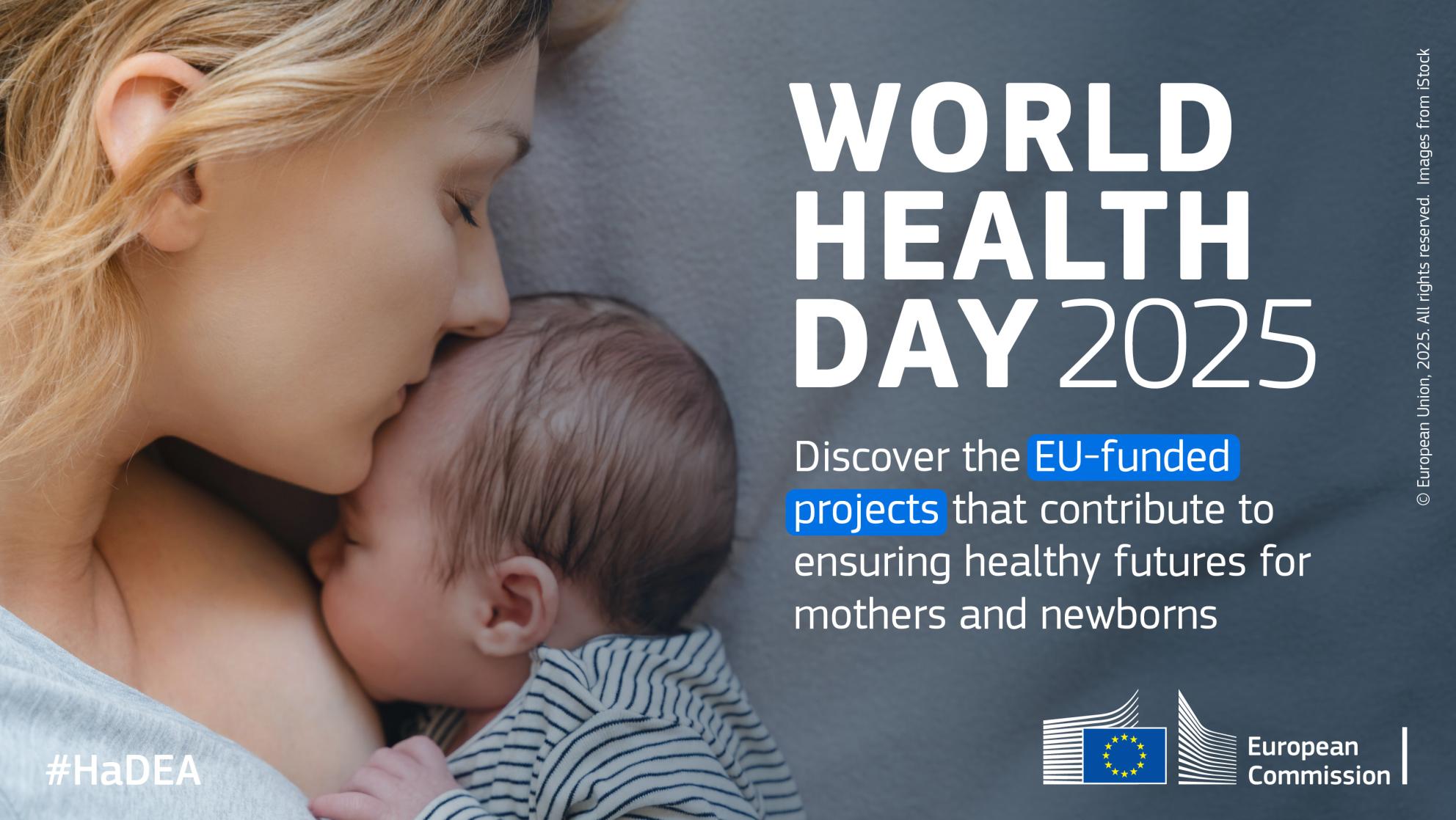
Improving maternal health remains a priority for the World Health Organization (WHO) and the EU. Although maternal mortality rates remain high in many regions globally, in the WHO European Region the maternal mortality rate declined by more than 50% between 2000 and 2020.
Care by skilled health professionals before, during and after childbirth can save the lives of women and newborns. That is why this year’s World Health Day, on 7 April 2025, focuses on drastically enhancing maternal and newborn health on a global scale. The WHO aims to raise awareness, provide useful health information, advocate for investments, and encourage collective action.
HaDEA manages EU-funded projects under the programmes EU4Health, Horizon Europe and Horizon 2020 that are committed to improving the health of mothers and babies.
Horizon
The recently finished Horizon 2020 project ALERT has achieved significant outcomes in the care for mothers and children in 16 hospitals in 4 countries in Africa – Benin, Malawi, Tanzania and Uganda: the perinatal mortality was reduced by 25% across these sites. This remarkable outcome was achieved through the co-design of interventions to define midwifery professionalism, the development of a training package that includes leadership mentoring and the improvement of quality care at childbirth – combined with the development of a perinatal e-registry to allow for impact calculation.
The project’s interventions could improve newborn health outcomes in hospitals at a reasonable cost in Sub-Saharan Africa, where high mortality and limited resources are common.
BornToGetThere, another recently finished Horizon 2020 project, has significantly enhanced early detection, surveillance, and intervention for infants at high risk of Cerebral Palsy (CP). This project has delivered tangible benefits by being the first initiative to develop and implement an International Clinical Practice Guideline across multiple countries, such as Italy, Denmark, Netherlands, Georgia, Sri Lanka and remote populations in Australia (Remote Queensland and Western Australia). It has also provided stakeholders with valuable educational resources. The project aims to extend training to more European countries as well as its methodology to other paediatric conditions.
The project managed to:
- Train over 1000 healthcare professionals in cutting-edge tools for the early detection and management of infants with CP and their families;
- Screen more than 5000 babies, identifying over 500 as high-risk for CP, and subsequently referring them to specialised intervention programmes.
The ongoing HIGH Horizons project examines how rising heat from climate change affects the health of pregnant and postpartum women, newborns, young children and maternity care health workers. As part of an expert group convened by the WHO, this Horizon Europe project aims to develop population-level heat-health indicators. Furthermore, HIGH Horizons is testing a prototype of a personalised heat-health early warning mobile app.
The project is also refining a tool to reduce the carbon footprint and heat of health facilities, enhancing overall wellbeing.
EU4Health
Mind the Mum is a project aiming at improving perinatal mental health (PMH) by designing tools and interventions to support mothers. For this purpose, the project is:
- Conducting nationwide needs analysis in Cyprus and Slovenia, for the transfer of lessons learnt and best practices from Poland and Spain;
- Building partnerships between health professionals, decision-makers and parent activists to co-develop effective prevention measures;
- Promoting policies and professional trainings to address maternal mental health conditions;
- Raising public awareness, reducing stigma and encouraging dialogues on PMH.
IMAGINE-HMB is working towards developing harmonised, evidence-based guidelines that ensure the safety and quality of donor human milk (DHM) to implement the 2024 EU Regulation on standards of quality and safety for substances of human origin intended for human application.
The project encompasses several objectives:
- Creating a DHM expert forum;
- Drafting guidelines for the implementation of technical standards and for the adherence to oversight requirements;
- Establishing a comprehensive implementation plan to support human milk banks;
- Creating a post-project strategy for ongoing support and to ensure up-to-date guidelines;
- Providing a training programme and digital tools for professionals.
Relevant links
World Health Day – healthy beginnings, hopeful futures
Background
Horizon Europe is the research and innovation programme of the EU for the period 2021-2027. The aims of Cluster 1 ‘Health’ include improving and protecting the health and well-being of citizens of all ages by generating new knowledge, developing innovative solutions and integrating where relevant a gender perspective to prevent, diagnose, monitor, treat and cure diseases. Horizon 2020 (H2020) was the EU’s multiannual funding programme between 2014 and 2020.
EU4Health is the fourth and largest of the EU health programmes. The EU4Health programme goes beyond an ambitious response to the COVID-19 crisis to address the resilience of European healthcare systems. The programme provides funding to national authorities, health organisations and other bodies through grants and public procurement, contributing to a healthier Europe. HaDEA manages the vast majority of the total EU4Health budget and implements the programme by managing calls for proposals and calls for tenders.
Politics
EU trade ministers discuss US tariffs
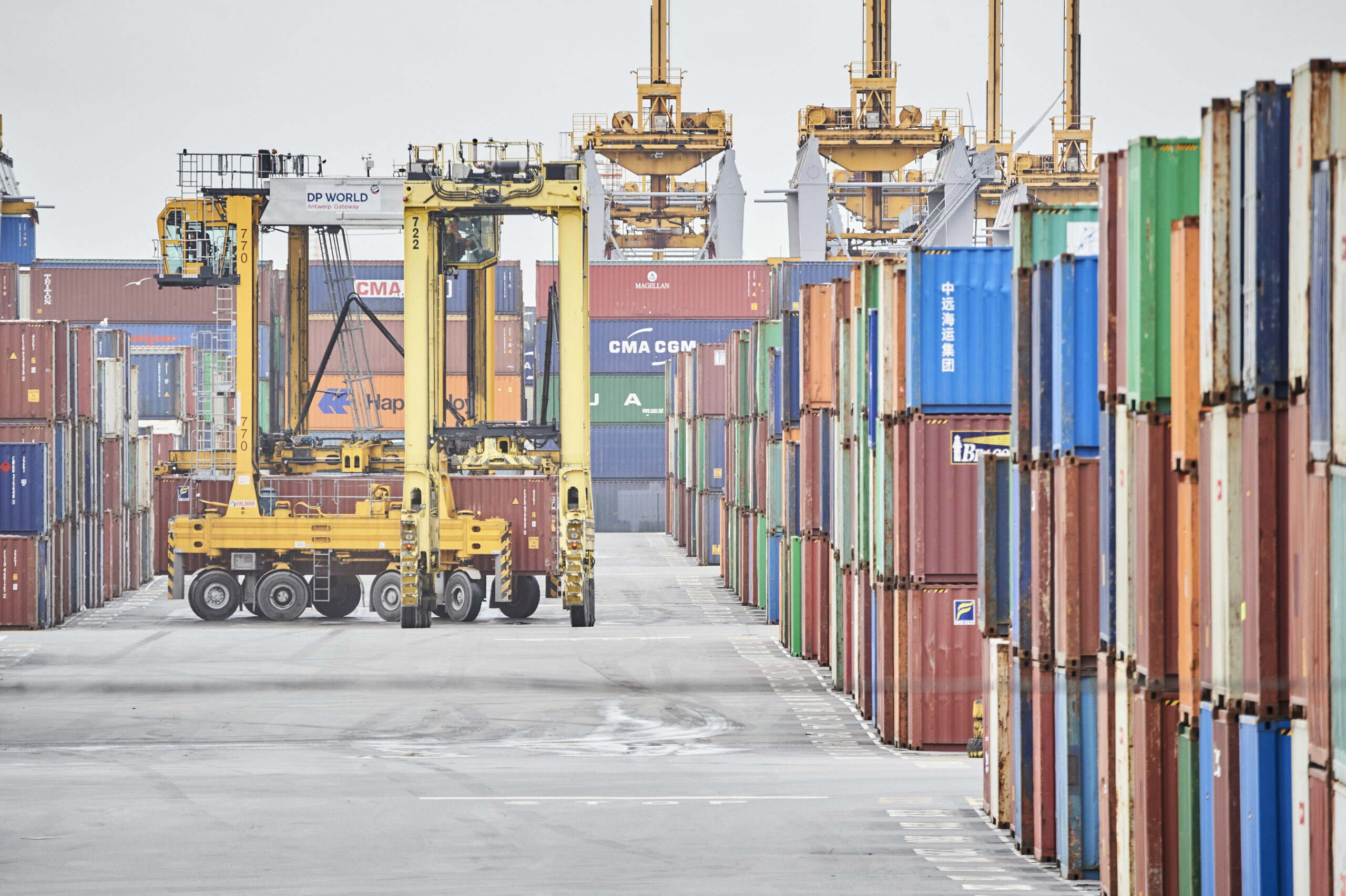
Trade relations with the US
Ministers held a discussion on the EU’s trade relations with the US, providing guidance for the forthcoming work.
In light of the recent developments, particularly the (partial) imposition of US tariffs, the ministers took this opportunity to assess the impact of these new tariffs and explore the potential for negotiating mutually acceptable solutions, which remains the EU’s preferred approach.
Further to the EU’s response in relation to the US tariffs on steel and aluminium, which is currently under preparation, ministers also addressed the possibility of further proportionate countermeasures if needed.
The EU deeply regrets the new US tariffs and remains committed to dialogue, seeking a negotiated solution acceptable for both sides. Today’s Council shows the member states are united and determined to defend interests of citizens and businesses alike. We support the European Commission and our response will be guided by patience and firmness. All options remain on the table.
Michał Baranowski, Undersecretary of State at the Ministry of Economic Development and Technology of Poland, responsible for Trade
Looking ahead, the Commission and member states will carefully assess any potential new US measures, as well as the latest tariffs announced (a 20% tariff on the EU).
The aim is to ensure that the EU’s approach remains both balanced and effective, protecting our economic interests while keeping the door open for mutually advantageous solutions.
- EU relations with the United States (background information)
Trade relations with China
The Council reviewed the current state and future outlook of EU-China trade relations.
Commissioner Šefčovič briefed ministers on the status of the EU’s trade ties with China following his visit to the country. He reported on his discussions with Vice Premier He Lifeng, Minister of Commerce Wang Wentao, and Minister of Customs Sun Meijung, focusing on how to improve and rebalance trade and investment relations between the EU and China.
China remains a key trading partner for the EU: it is the EU’s third-largest trading partner and the second-largest in terms of trade in goods. However, the growing trade imbalances continue to raise concerns.
The EU-China trade deficit for 2024 reached €304.5 billion; while this is an improvement compared to the 2022 figures (€397 billion), it nonetheless represents a record high in terms of volume. In 2024, Chinese foreign direct investment (FDI) into the EU reached its highest level in the past five years, amounting to €185 billion, while EU FDI in China remained stable at €184 billion.
Politics
Montenegro: remarks by High Representative/vice-President Kaja Kallas at the presentation of the European Peace Facility equipment to Armed forces
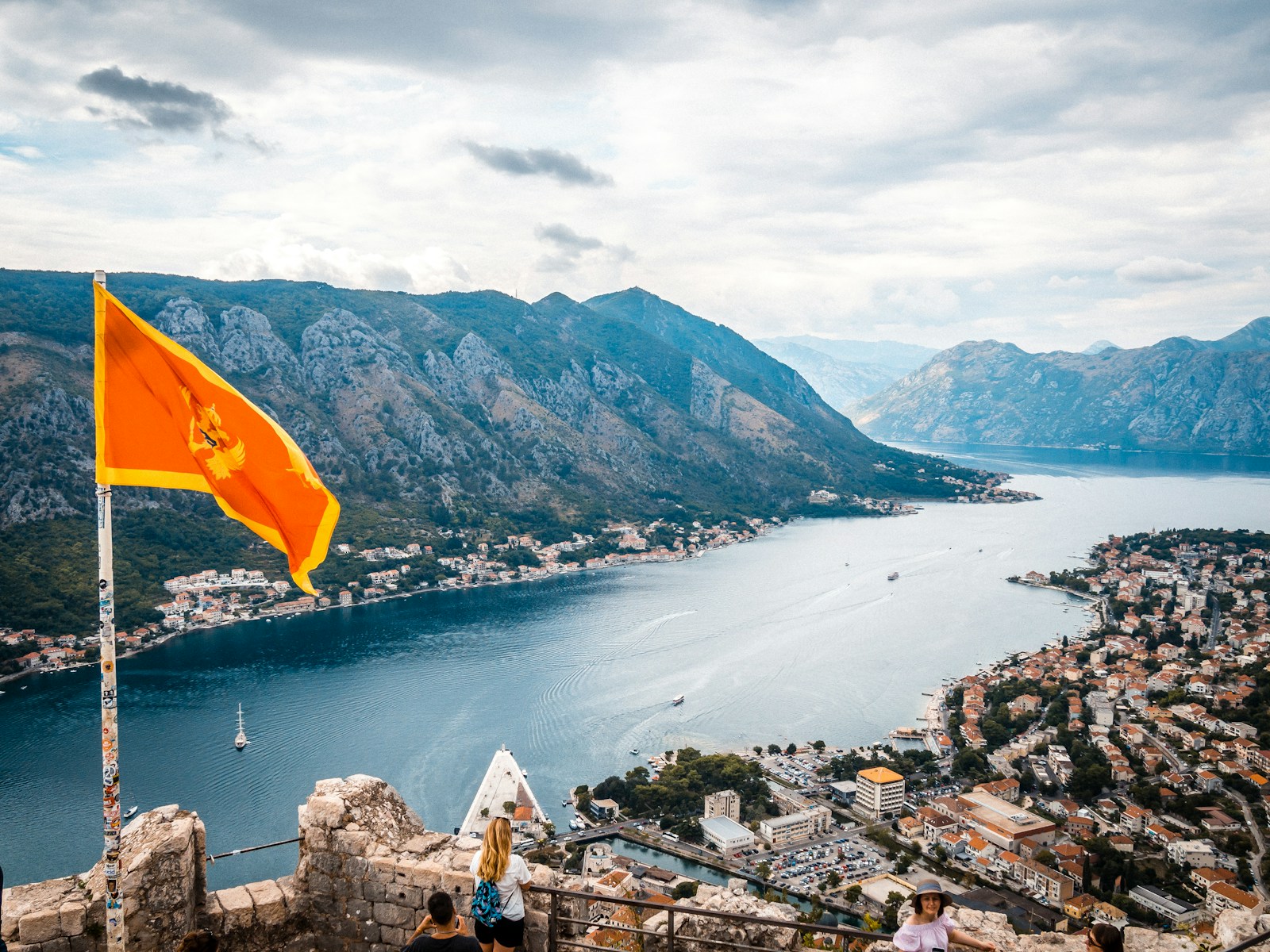
Dear Minister, dear Dragan [Krapović] and dear ladies and gentlemen.
It is a pleasure to be here today in Montenegro. We have just seen important military equipment including chemical, biological, radiological, nuclear protective gear, search and rescue tools and equipment for extreme weather.
In February, the EU approved assistance worth €6 million under the European Peace Facility to strengthen Montenegro’s Armed forces. In the coming weeks, we will work with you to create the detailed list of Montenegro’ specific military needs, so we can continue providing the right support.
And this equipment will add to the €6 million for the Balkan Medical Task Force. We will provide medical vehicles, field hospital tents and emergency heating systems. Much of this aid will arrive over the course of this year.
Our assistance aims to strengthen Montenegro’s defence capabilities and ensure that its Armed forces can work better alongside European Union but also alongside NATO.
I also want to thank, Minister, for Montenegro’ support of the Horn of Africa. In doing this, Montenegro is directly contributing to our collective efforts in crisis management and geopolitical stability. Your active engagement in common security and defence policy missions is also strong commitment to the values and responsibilities that, come with the European Union membership.
Tomorrow I will be there in Albania and Bosnia and Herzegovina where I will urge the local leaders to stop divisive rhetorical attacks on the constitution. I will also call on them to take the responsibility and support the country’s progress in the European Union path, just as Montenegro has done.
Dear Dragan, thank you again for hosting me today. Montenegro is not just a friend and an ally, but also a future European Union Member. Our cooperation will only grow stronger.
Thank you so far and [I am] looking forward to also welcoming you in the European Union family.
Thank you.
Montenegro: remarks by High Representative/vice-President Kaja Kallas at the presentation of the European Peace Facility equipment to Armed forces
Source link
-
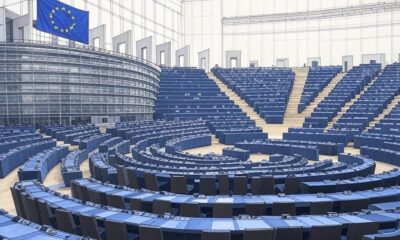
 Politics6 days ago
Politics6 days agoEU Parliament Tackles Steel Industry, Fundamental Rights, and Budget Priorities in Plenary Session
-

 EU & the World6 days ago
EU & the World6 days agoPaul Mescal’s Girlfriend: Who Is the Actor Dating?
-

 Sports6 days ago
Sports6 days agoNBA, Steph Curry and Nikola Jokic show: Memphis knockout, Minnesota no
-

 EU & the World6 days ago
EU & the World6 days agoIs Cory Booker Still Speaking? How Long His Filibuster Lasted
-

 Sports6 days ago
Sports6 days agoMilan-Inter: Conceiçao with a doubt, Inzaghi changes six
-
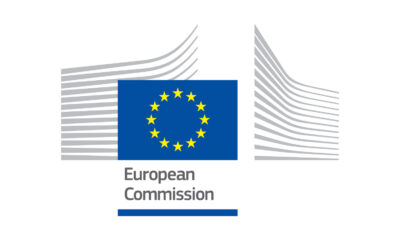
 Politics5 days ago
Politics5 days ago36 000 free EU travel passes for 18-year-olds
-

 Sports6 days ago
Sports6 days agoTrapani Shark leads the way, Jasmin Repesa reveals the secret
-

 EU & the World6 days ago
EU & the World6 days agoVal Kilmer’s Cause of Death: What Happened to the Late ‘Top Gun’ Star








